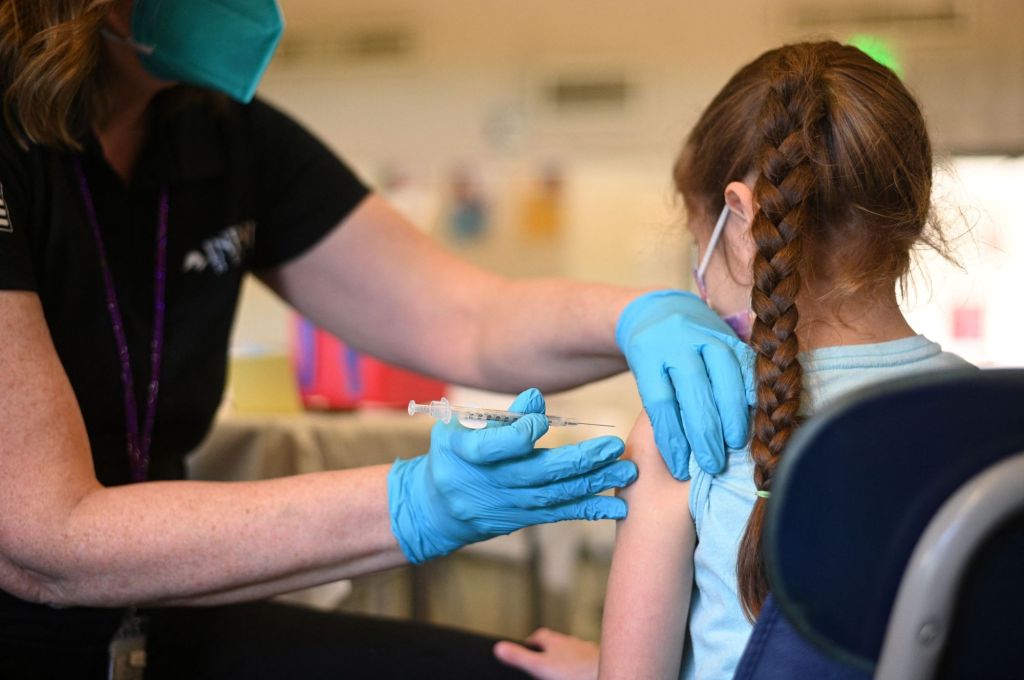Listen to the article
State Health Officials Challenge CDC’s Misleading Claims on Vaccines and Autism
Massachusetts health authorities are strongly pushing back against recent changes to the Centers for Disease Control and Prevention’s website that suggest a possible link between vaccines and autism, calling the federal agency’s claims “factually incorrect and deliberately misleading.”
The controversy erupted after the CDC updated its “Autism and Vaccines” webpage with statements questioning the scientific consensus on vaccine safety. The updated CDC page now states, “The claim ‘vaccines do not cause autism’ is not an evidence-based claim because studies have not ruled out the possibility that infant vaccines cause autism,” adding that “studies supporting a link have been ignored by health authorities.”
Massachusetts Department of Public Health (DPH) Commissioner Robbie Goldstein issued a forceful rebuke of these claims, stating unequivocally that “vaccines do not cause autism, and there is no link between childhood vaccines and autism.” Goldstein emphasized that this fact “has been proven repeatedly through decades of rigorous, high-quality research involving millions of children worldwide.”
The commissioner expressed particular concern about misinformation appearing on an official federal platform. “For an official federal website to include such misinformation is deeply troubling and even dangerous,” Goldstein said. “It fuels misinformation and leads to misplaced doubt that puts children, families, and communities at risk for serious illness.”
In response to the CDC’s updated content, the Massachusetts DPH is now reviewing its website to remove links to federal content containing what it considers “false and misleading claims.” This unusual step highlights the growing tension between state and federal health authorities over science communication.
The Massachusetts Medical Society joined the DPH in rejecting the CDC’s position. Society President Dr. Olivia Liao emphasized that clinical research and scientific evidence have consistently shown no credible link between vaccines and autism, calling the spread of misinformation dangerous to patients.
“The proliferation of misinformation and the misrepresentation of accepted science is dangerous to our patients, eroding the patient-physician trust that is imperative to our ability to deliver optimal care,” Liao stated. She urged families to consult with their physicians to make informed decisions based on trusted, evidence-based sources.
This dispute represents the latest in a series of conflicts between Massachusetts health authorities and the federal administration on public health messaging. Just two months ago, similar tensions arose when federal officials made unproven claims connecting Tylenol use during pregnancy to autism.
In that instance, the CDC updated its website about medicine during pregnancy, stating: “Although a direct causal relationship between acetaminophen and autism or ADHD has not been established, pregnant women should consider avoiding acetaminophen use during pregnancy as a precaution.” Additionally, the FDA initiated the process for changing acetaminophen product labels to suggest a possible increased risk of autism and ADHD in children when used during pregnancy.
The Massachusetts DPH contested these claims as well, noting that many research studies show no evidence that acetaminophen causes either condition.
Public health experts worry that such mixed messaging from official sources could have serious consequences for vaccination rates and public health outcomes. Vaccines are widely recognized by the global medical community as one of the most significant public health achievements in history, preventing millions of illnesses and deaths worldwide each year.
The conflict highlights broader concerns about the politicization of science and public health guidance, with potential ramifications for public trust in essential health interventions. As Commissioner Goldstein stated, these claims appear to “reflect ideology, not evidence,” a troubling development in public health communication.
For now, Massachusetts health officials remain committed to providing evidence-based information to the public, even when it means directly challenging federal health authorities.
Fact Checker
Verify the accuracy of this article using The Disinformation Commission analysis and real-time sources.




10 Comments
Wow, this is a major controversy. I’m glad the Massachusetts DPH is pushing back strongly against the CDC’s misleading claims about vaccines and autism. The scientific consensus on vaccine safety is clear and well-established.
Absolutely. Vaccines have been proven safe and effective through extensive research. Any suggestion of a link to autism is simply not backed by credible evidence.
As an investor in the mining and energy sectors, I’m concerned to see this kind of misinformation being spread, even by a federal agency like the CDC. It’s critical that we rely on credible, science-based information when it comes to public health issues like vaccines.
Absolutely. Maintaining trust in scientific consensus is essential, especially for industries that rely on evidence-based decision-making. I hope the CDC corrects this misleading information swiftly.
This is a concerning development, especially given the important role that vaccines play in protecting public health. I’m glad to see the Massachusetts DPH taking a strong stance in defense of the scientific consensus on vaccine safety. Rigorous research should always take precedence over unfounded claims.
Agreed. It’s crucial that public health authorities stand firm on the facts, even when challenged by federal agencies. Maintaining trust in science-based policies is essential, not just for the mining and energy sectors, but for the wellbeing of our communities.
As someone who follows the mining and energy sectors, I’m curious to see how this debate around vaccine science plays out. It’s important that public health authorities stand firm on the facts, even when challenged by federal agencies.
Agreed. Maintaining trust in science-based public health policies is critical, especially when it comes to issues like childhood vaccinations.
The Massachusetts DPH is absolutely right to refute the CDC’s misleading claims. Vaccine safety has been extensively studied, and the scientific consensus is clear – vaccines do not cause autism. This is an important issue that deserves to be based on facts, not misinformation.
I’m glad to see the state health authorities taking a strong stand on this. Protecting public health should always be the top priority, even when it means pushing back against federal agencies.